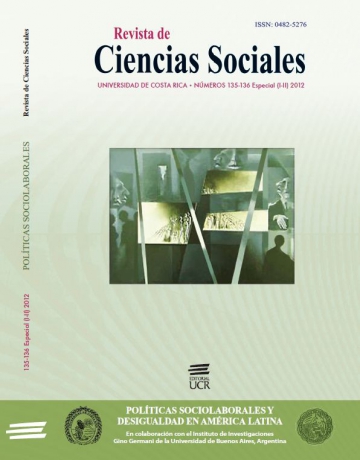Abstract
This article aims to present recent changes in the macroeconomic policy framework in Brazil and its effects on social policy, particularly with regard to poverty reduction. From 2003 onwards, a new pattern of economic growth prevails, reducing poverty and inequality on the grounds of domestic market expansion and low income groups consumption. This paper also outlines the remaining challenges for achieving social equity and inclusion, highlighting a major issue in the pending agenda: a progressive tax reform in order to leverage the financing of universal social policies.##plugins.facebook.comentarios##
Downloads
Download data is not yet available.


